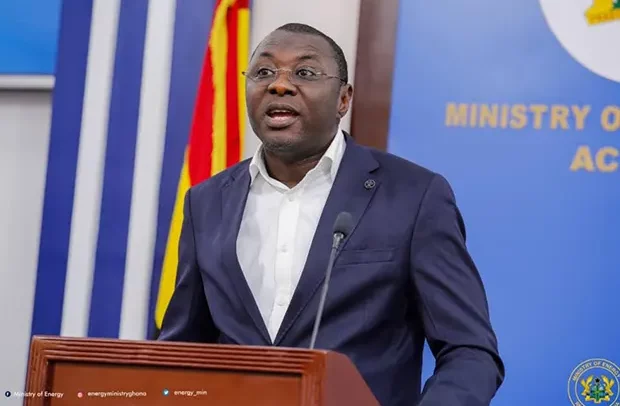Mohammed Amin Adam
In a press briefing held on Saturday, Finance Minister Mohammed Amin Adam assured Ghanaians that the government is committed to not burdening citizens with more taxes.
He emphasized that the government will take a tough stance on collecting revenue from those who have been evading or not properly paying taxes in the country.
The announcement came after the country reached a staff-level agreement with the International Monetary Fund (IMF) on Ghana’s Extended Credit Facility (ECF) arrangement.
However, the suspension of the 15% Value Added Tax (VAT) on electricity consumption and the annual GHC100 levy on petrol and diesel vehicle owners created a revenue gap of GHC1.8 billion.
To address this revenue gap, the government plans to implement effective revenue generation mechanisms announced in both the 2023 and 2024 budgets. Minister Amin Adam stated, “We’re determined to go out there and collect the taxes from those who have not been paying and those who have been evading taxes… to generate the desired revenue to fill the gap created as a result of the suspension of the taxes.”
Furthermore, the government is also focusing on expenditure rationalization to complement its aggressive revenue mobilization efforts. Amin Adam highlighted the implementation of an arrears-clearing plan to address outstanding payments and the onboarding of more agencies to the Government Integrated Financial Management Information System (GIFMIS) to control spending within budgetary limits.
Acknowledging the challenges faced by Ghanaians due to IMF-supported reforms, Amin Adam encouraged citizens to remain patient and sacrificial.
He assured them that the fiscal consolidation efforts would eventually bring relief and contribute to the country’s economic growth.
Julie Essiam, the commissioner general of the Ghana Revenue Authority (GRA), provided further insights into alternative revenue mobilization efforts.
GRA and the Organisation for Economic Cooperation and Development (OECD) are working together to ensure the effective implementation of compliance measures on the foreign income of resident Ghanaians, aiming to generate the GHS1.8 billion revenue that the suspended electricity and waste pollution taxes would have provided.
Governor of the Bank of Ghana (BoG), Ernest Addison, reaffirmed the government’s commitment to prevent election-related expenditures from derailing economic progress. Addison stated, “The government and the central bank are committed to changing that narrative…and we will remain committed to ensure that program implementation stays firm.”
It is anticipated that in June this year, the IMF Board will approve Ghana’s third tranche of US$360 million, bringing the total disbursement under the country’s ECF arrangement to US$1.56 billion. The IMF-supported program aims to restore macroeconomic stability, debt sustainability, and inclusive growth, with a focus on building resilience in the post-COVID-19 era.
With the government’s determination to address revenue shortfalls without overburdening citizens, Ghanaians are hopeful that these measures will lead to economic stability and prosperity in the long run.
By Vincent Kubi


